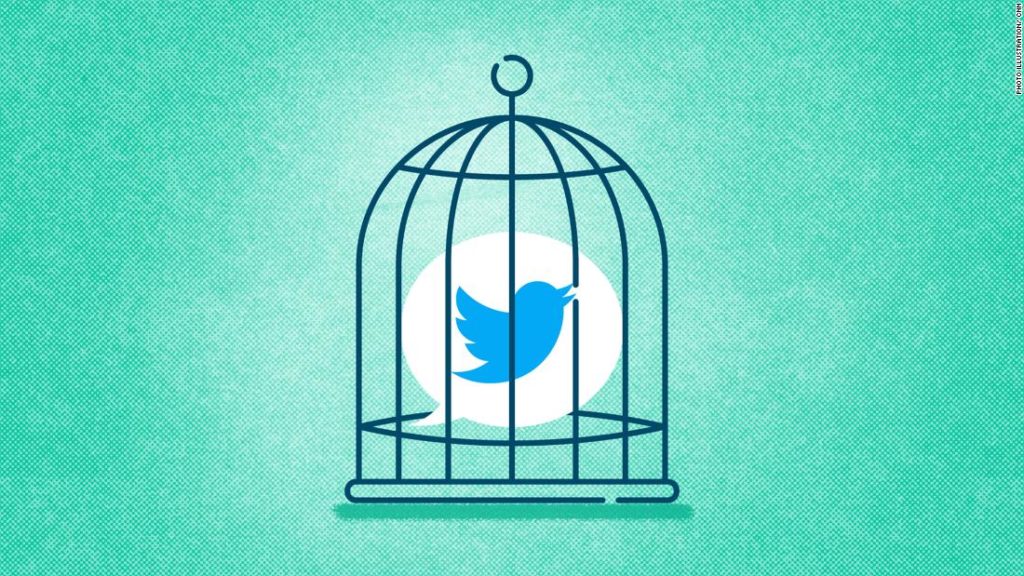“In India, we value freedom and we value criticism because it is part of our democracy,” the government said. “But freedom of expression is not absolute and it is subject to reasonable restrictions.”
The government added that Twitter “is welcome to do business in India” but must respect local laws, and criticized “the manner in which Twitter has unwillingly, grudgingly and with great delay complied with the substantial parts of the order.”
The social media company said it had taken some action against more than 500 accounts that were flagged by the government’s orders. Twitter said they were in “clear violation of its rules.” It also made several other accounts only visible outside India and restricted the visibility of certain hashtags containing harmful content.
But Twitter also drew a line in the sand.
“Because we do not believe that the actions we have been directed to take are consistent with Indian law, and, in keeping with our principles of defending protected speech and freedom of expression, we have not taken any action on accounts that consist of news media entities, journalists, activists, and politicians,” the company said. “We will continue to maintain dialogue with the Indian government and respectfully engage with them.”
Who will blink first?
With more than 700 million internet users, India is a huge and important market for global tech companies, albeit an increasingly precarious one as the government led by Prime Minister Narendra Modi seeks to tighten its grip on the internet and social media.
“The shrinking space for civil society is being mirrored by censorship and anti-democratic regulatory moves to censor users from their rights to free speech,” said Thenmozhi Soundararajan, executive director at advocacy group Equality Labs. “It is time for the world to understand how much is at risk right now and for American companies like Twitter and Facebook to act before it’s too late.”
Twitter, for now, appears to be standing its ground against the Indian government.
“We will continue to advocate for the right of free expression on behalf of the people we serve. We are exploring options under Indian law — both for Twitter and for the accounts that have been impacted,” the company said Wednesday. “We remain committed to safeguarding the health of the conversation occurring on Twitter, and strongly believe that the tweets should flow.”
But if the government chooses to make good on its threats or further escalate the situation, Twitter is left with few good options.
“There are two main risks: The first is to Twitter’s employees in India, who may be at risk if the company fails to comply with demands,” said Jillian York, Director of Freedom of Expression at the Electronic Frontier Foundation.
“The second risk is that Twitter continues to refuse and gets blocked in India. While this may be the right moral outcome, it’s obviously not the best outcome for the Indian people, many of whom rely on social media to get out key messages about what’s happening on the ground,” she added.
Threading the needle
While Twitter and the Indian government remain at an impasse with each other, both sides must also deal with external scrutiny.
“Jack has shown in the past that he can lead with his values,” said Soundararajan, referring to Twitter CEO Jack Dorsey.
“The fundamental problem is consistency … are they able to do the same kind of contextual analysis that they did around QAnon posts, hydroxychloroquine posts and Trump’s incitement?” said David Kaye, a law professor at the University of California, Irvine who previously served as the United Nations Special Rapporteur on the promotion and protection of the right to freedom of opinion and expression. “India is a really great example of how hard that is.”
“I think there’s still a risk for Modi in particular of appearing to be unable to handle sort of fundamental democratic principles like the right to peaceful assembly, the right to protest, the right to criticize and so forth,” Kaye said. “I think it’ll be interesting to see if the Biden administration and other governments, who are friendly with India but are in the democratic camp, really encourage the government to take a different approach here.”
— CNN’s Manveena Suri and Esha Mitra contributed to this report.
You may also like
-
Afghanistan: Civilian casualties hit record high amid US withdrawal, UN says
-
How Taiwan is trying to defend against a cyber ‘World War III’
-
Pandemic travel news this week: Quarantine escapes and airplane disguises
-
Why would anyone trust Brexit Britain again?
-
Black fungus: A second crisis is killing survivors of India’s worst Covid wave

